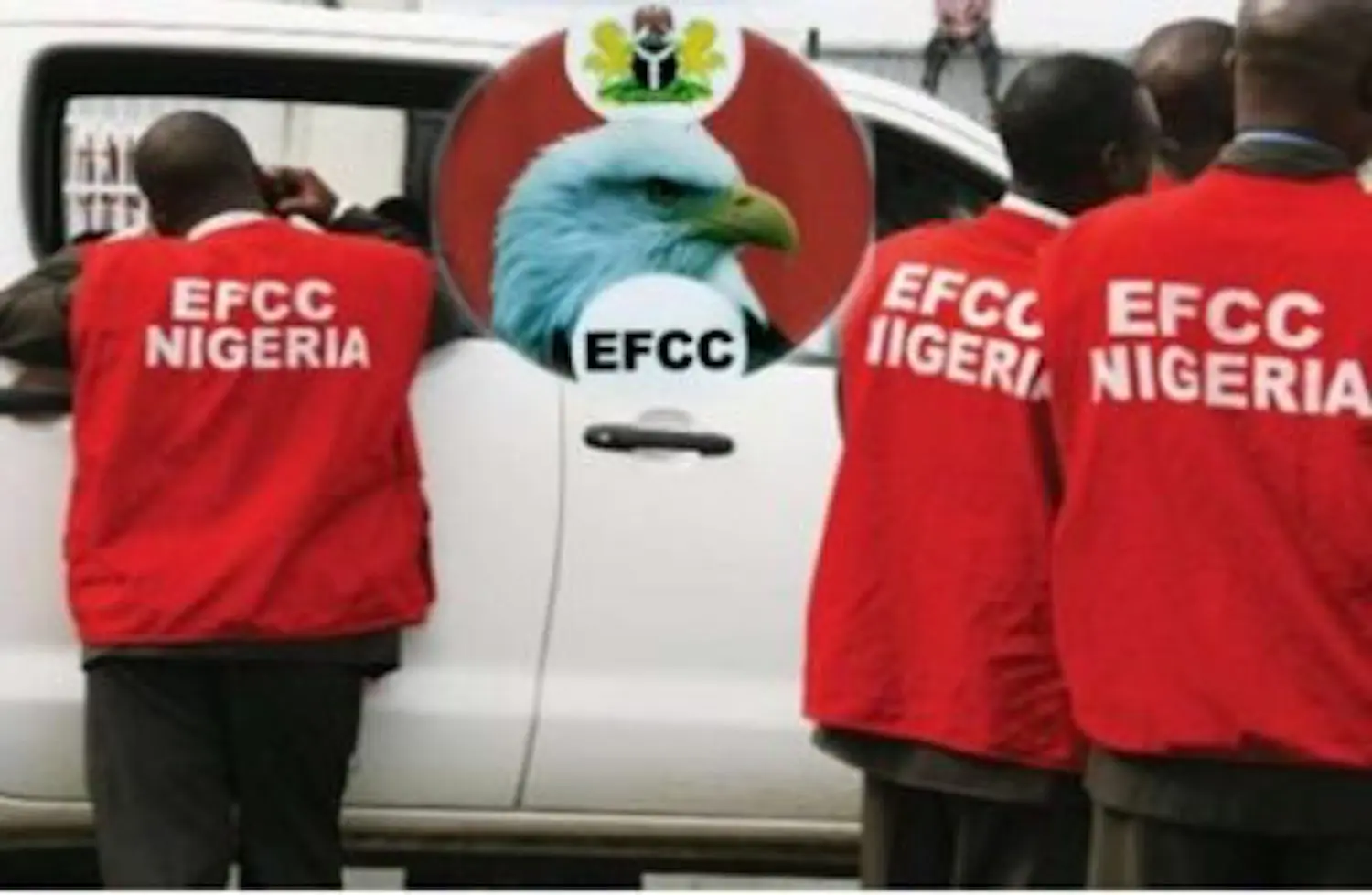
The Economic and Financial Crimes Commission (EFCC) has come under intense criticism following reports of exhibit theft by some of its operatives.
According to Saturday PUNCH, several EFCC officials have been dismissed, while others are under investigation for stealing recovered assets, including cash and gold bars. In 2024 alone, no fewer than 27 officers were reportedly dismissed for misconduct and fraudulent activities.
EFCC spokesman Dele Oyewale confirmed in a statement on January 6, 2025, that the agency is investigating a “trending $400,000 claim” involving a yet-to-be-identified staff member and a sectional head. Two days later, 10 officers from the Lagos zonal command were detained over the disappearance of operational items, including gold bars worth over ₦1 billion and cash totaling between $350,000 and $400,000.
In a separate incident, an officer from the Kaduna Zonal Office, identified as Polycarp, allegedly stole over $30,000 and other valuables. While the EFCC has not commented on this case, it adds to the growing allegations of corruption within the commission.
Reasons Behind Exhibit Theft
A credible security source described the theft as “highly disappointing,” attributing it to poverty, the rising cost of living, and unchecked access to high-value items such as dollars and gold bars. The source emphasized the need for stricter mechanisms to secure exhibits, suggesting that such items should either be stored in bank vaults or in highly secured locations within EFCC offices with multiple layers of access controls.
The source proposed that access to exhibit rooms should require the simultaneous presence of at least three officials, each holding a unique key, to ensure accountability and prevent unauthorized entry.
On punitive measures, the source recommended outright dismissal, prosecution, and using international tracking systems like Interpol to locate any offending officials who flee the country.
The potential fallout from exhibit theft was also highlighted, including the risk of major scandals if suspects win their cases and demand the return of missing items.
Internal Audits and Reforms
In response to the growing concerns, EFCC Chairman Ola Olukoyode has ordered a full-scale audit of recovered assets across all zonal offices. Access to exhibit rooms has been restricted, and surveillance has been intensified to prevent further lapses.
Oyewale, the EFCC spokesperson, stated that the ongoing audit aims to enhance accountability, transparency, and integrity within the commission. He dismissed claims that poor welfare conditions were to blame for the thefts, asserting that such acts have no justification.

“The chairman is determined to cleanse the system and block loopholes,” Oyewale said. He attributed criticism of the EFCC to detractors negatively impacted by the agency’s internal reforms.
Public and Expert Reactions
The commission has faced backlash over its operational tactics, particularly its controversial night raids, which many Nigerians describe as intimidating and prone to abuse. The recent killing of an EFCC operative, Aminu Salisu, during a midnight operation in Anambra State has further fueled public outrage.
Legal practitioners and security experts have condemned the EFCC’s operational protocols and called for reforms. Lawyer Darlington Agomuo criticized the agency’s unprofessional conduct during raids, urging EFCC operatives to conduct due diligence and follow due process.
Renowned analyst Jackson Lekan-Ojo emphasized the need to hold corrupt officials accountable, warning that such misconduct undermines the agency’s credibility and the fight against corruption.
Debo Adeniran, Executive Director of the Centre for Anti-Corruption and Open Leadership (CACOL), called for urgent internal cleansing within the EFCC to restore public trust. He criticized the long-standing trend of “looting the loot” and urged anti-corruption agencies to adopt stronger oversight measures and enforce stricter accountability.
Security consultant Abuh Adam also recommended thorough and continuous background checks on EFCC personnel, including monitoring their relationships and associations, to detect potential corruption.
Recommendations
Experts and stakeholders have proposed several reforms to address the EFCC’s challenges:
- Enhanced security for exhibits: Store high-value items in bank vaults or highly secured areas with multi-layered access controls.
- Stricter oversight: Regular audits and surveillance of exhibit rooms to prevent unauthorized access.
- Improved personnel screening: Conduct thorough background checks and ongoing monitoring of EFCC staff.
- Accountability and transparency: Implement robust ethical training programs and enforce strict consequences for misconduct.
- Reform operational tactics: Cease night raids and ensure due process is followed during operations.
The EFCC must take decisive steps to rebuild its credibility and demonstrate its commitment to eradicating corruption while maintaining the trust of the public.









